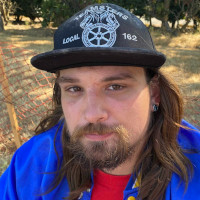By Jesse Dreyer and Philip Locker
[In July 2023, we’ve updated this guide. You’ll find our new version here.]

Ideological caucuses are networks or organizations of DSA members that promote certain political ideas. Comrades in different cities and in different working groups can connect in caucuses to make their politics heard and to fight for what they believe is the best strategy for DSA and the wider socialist movement. Below are the main caucuses in DSA and our views about them:
Reform & Revolution: That’s us! We are a Marxist caucus that aims to combine revolutionary socialist principles with the necessary flexibility to connect with mass movements of working-class and oppressed people. We want to fight for each and every improvement today, while linking those struggles to building working-class power to end exploitation, oppression, and capitalism once and for all.
Bread & Roses: All three of their candidates were elected to the NPC. The largest organized caucus within DSA. A Marxist caucus that argues for a “democratic road to socialism” along the lines of Ralph Miliband (in contrast to a revolutionary socialist understanding of the state, which Reform & Revolution is based on). They are some of the best builders of the organization who have played an important role fighting for class-centered politics, the rank-and-file strategy in the labor movement, a political strategy of mass struggle as opposed to prefigurative politics, and for going all in on the 2020 Bernie Sanders campaign as part of a strategy of a “Dirty Break” from the Democratic Party. However, we do have political disagreements with B&R. For example, we believe they are sometimes opportunistic in the sense of politically adapting themselves to reformist working-class leaders, such as Bernie Sanders or left union leaders as opposed to critically supporting them on the basis of an independent Marxist position. We think they also tend towards an approach that too simply gives economic answers to questions of intersecting oppressions.
Tempest Collective: An online journal and collective of members both inside and outside of DSA. They are very focused on their generally good proposals to increase democracy within DSA. Standing in the revolutionary socialist tradition, they have also argued for a principled internationalist position as opposed to “campism” (in Tempest’s and our view a simplistic approach of uncritically supporting “anti-imperialist” governments or mass left parties). They didn’t run any candidates for the NPC. A prominent member of Tempest, Andy Sernatinger (@andsern), provides very useful reporting on DSA’s inside politics.
Local communist formations include Emerge (NYC) and Red Star (San Francisco). Justin Charles from Emerge was elected to the NPC. Jennifer Bolen (Jenbo), who was elected two years ago as a Red Star candidate, was re-elected to the NPC (but is no longer a member of Red Star, though still received their endorsement). Emerge and Red Star are both multi-tendency communist formations, with Red Star being more Maoist influenced. In the run-up to the convention they worked with the Collective Power Network due to their agreement on the inadequacy of national working groups and general agreement on DSA’s international work as represented by Resolution 14.
Socialist Majority Caucus (SMC): Three of their five candidates for the NPC were elected. SMC was an influential force in the last NPC and in key DSA chapters like New York City. Many of the best organizers in DSA are members of SMC. Politically, however, we disagree with SMC due to their reformist and opportunist approach. Lacking a developed political ideology, SMC tends to pragmatically accommodate the most popular sentiments on the left.
Green New Deal Slate: All three members of the slate were elected to the NPC. We share their urgency to fight for eco-socialism and, within that, an orientation toward labor. We also appreciate their bold vision for mass DSA campaigns that aim to have a major impact. They unfortunately supported Resolution 14. However, their statements about the need to build DSA as a “proto-party” are positive.
Collective Power Network (CPN): While arguing for a working-class orientation and mass struggle strategy informed by Marxism, they tend to have a mistakenly depoliticized organizational focus. A few months before the convention they suffered a large number of resignations. They did not run anyone for the NPC. They have politics reminiscent of the late 1930’s CPUSA, with a focus on relatively uncritical support for union leaders, mass reformist and center-left parties in Latin America, and a long-term commitment to running on the Democratic Party ballot line.
DSA Renewal: Originally a slate of five candidates for the NPC, but three withdrew during the convention. The remaining two were elected to the NPC. Renewal is a reconstitution of one part of the previous CPN leadership. We published a statement during the convention on the allegations against some of the Renewal comrades.
Libertarian Socialist Caucus (LSC): One member of LSC ran for the NPC and was elected. The LSC is a caucus of anarchists and libertarian socialists. They have a focus on horizontalism, mutual aid, prefigurative politics, autonomous tenant organizations, and abolition (including within the framework of capitalism) — all of which we often politically disagree with.
Marxist Unity Slate: Made up in part by supporters of the online journal Cosmonaut they describe themselves as Neo-Kautskyists in the political tradition of the British Weekly Worker, whereas we in Reform & Revolution draw more from the Marxist ideas of Lenin, Trotsky, and Luxemburg. The Marxist Unity Slate put forward a slate of resolutions as well as amendments to the national platform.
Class Unity: A “class-first” caucus which opposes Identity Politics. They can rightly
be called class reductionist. They proposed good resolutions to the convention for Childcare for All, Amnesty for All, Spanish translation, and STV for Leadership Elections. We disagree with their class reductionism. None of their members ran for NPC.

 by
by 
































